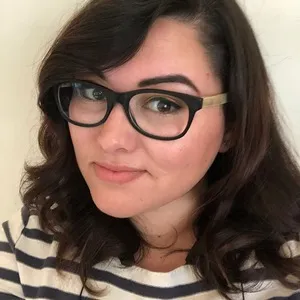Samin Nosrat is making quite a name for herself this year. Not only did her book Salt, Fat, Acid, Heat: Mastering the Elements of Good Cooking win a few accolades, including the 2018 James Beard Award for Best General Cookbook, she also just released her new Netflix docu-series in October 2018 under the same name. Her cookbook easily became my go-to audiobook while I was cooking at home, driving through Berkeley, or walking between classes this semester.
She grew up in an Iranian-American household, savoring her culture’s food, but never learned to cook until she went away to college at UC Berkeley to study English. After saving money for seven months, one fateful meal at Chez Panisse during her sophomore year changed everything. On impulse, she asked for a job bussing tables at the world-renowned sustainable food restaurant and quickly rose through the ranks in the kitchen, learning all the essential skills and techniques of French cooking. She traveled and built up her culinary skills to the chef we know and love today. The rest, as they say, is history, right?
Not quite. What was Samin Nosrat’s life like before figuring out the fundamentals of salt, fat, acid, and heat? We are always enamored and intrigued about how a chef becomes a household name, yet we rarely ask what their life was like before integrating themselves into the food world. I was lucky enough to talk with her over the phone about her college years before and during her time at Chez Panisse, and what it was like for her to learn how to cook for the first time in college.
From Dining Halls to Professional Kitchens

Like many college students, Samin Nosrat spent her first two years in the dorms, living off a self-proclaimed “all carb diet of cheddar cheese and bread” in the Clark-Kerr dining halls of Berkeley. She found that going from “mom buying all the food to suddenly finding [herself] in this huge culinary universe was overwhelming.” But this also sparked her curiosity. Since Samin didn’t have Google search bars to get quick information about an ingredient, she had to “put energy into that natural curiosity” by asking people and reading cookbooks to build up her knowledge of the culinary world.
College Resourcefulness

After studying abroad during her junior year, she lived in an apartment with roommates, trying to learn how to cook with the equipment they had her senior year. Samin reminisced with fondness that she “had to use a flat comal used to make Mexican tortillas to cook food, and the grease fallout would just make a mess since we didn’t even have a cast-iron skillet.”
But she also thought back to when she had to use some good old-fashioned ingenuity. “How do you make mayonnaise without a whisk? An intern from [Chez Panisse] came over and told me you could use two forks back-to-back. I couldn’t just order it online on Amazon. So I made heavy whipping cream and mayo that way, even though it was a thousand times harder to do.”
“Little Accidents” in the Kitchen
One of my favorite parts of the series was how Samin was open about her “little accidents” while cooking. One example is when she messed up in front of her mom when creating her favorite Iranian dish, tahdig. She let millions of people see these moments, even though she said she was thinking “Oh crap, I can’t believe this happened on camera.”
She confided in me that she was internally beating herself up in that moment, but was happy she kept it in the final cut of the episode. The thing is, we all make those mistakes while cooking, but making mistakes is what helps us learn to be better cooks. As Samin eloquently put it, “There is something to learn in everything we cook.”
Practicing is a Gift
“So much of cooking is just practice, and they told me at the restaurant in the beginning that I would eventually know how to cook in ten years. I was 19. Ten years seemed like an eternity—it was half of my life at that point.” She said that while it was hard to be a “perfectionist, overachieving student and feel like she was never doing anything right,” that she started to realize eventually that “practicing and making mistakes was a gift.” After all, it’s food—you can stop cooking, learn, and try again tomorrow. And when you do succeed, celebrate your small victories.
It was an eye-opening experience to talk with someone like Samin Nosrat—she was as vivacious, humble, eloquent and wholesome as she was on her show. What will stick with me for years to come about our conversation is that it is so easy to forget that the people we aspire to now as college students had to start somewhere too. In my case, I’m in the same place Samin began her journey—walking around the Doe Library, writing, reading, and always hungry to learn more about food.


